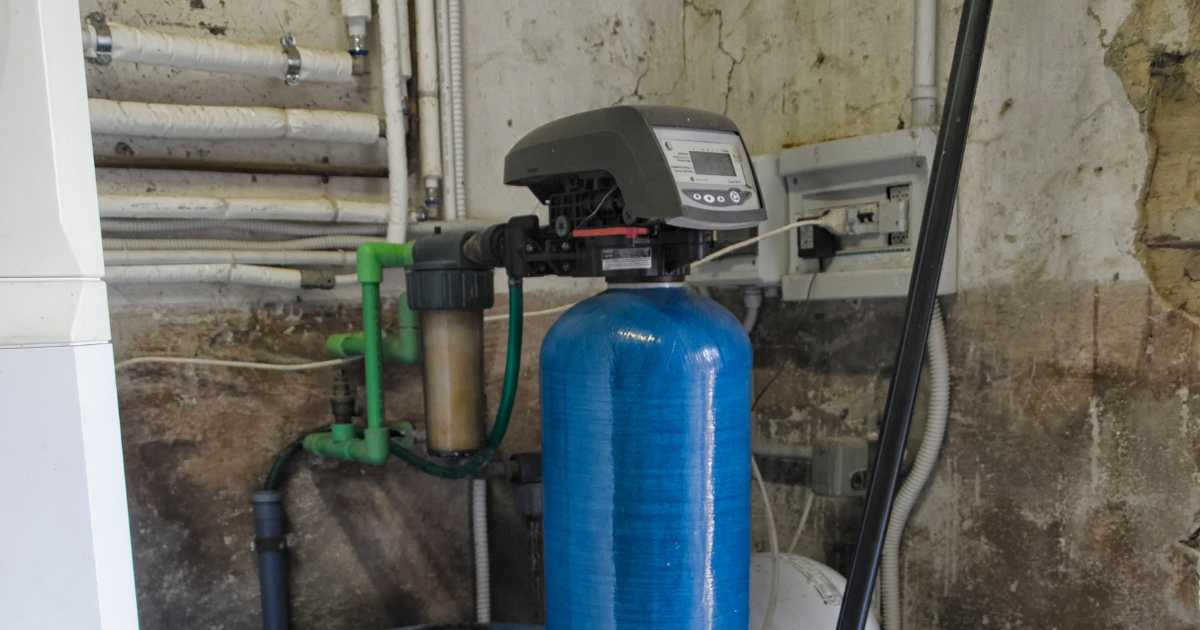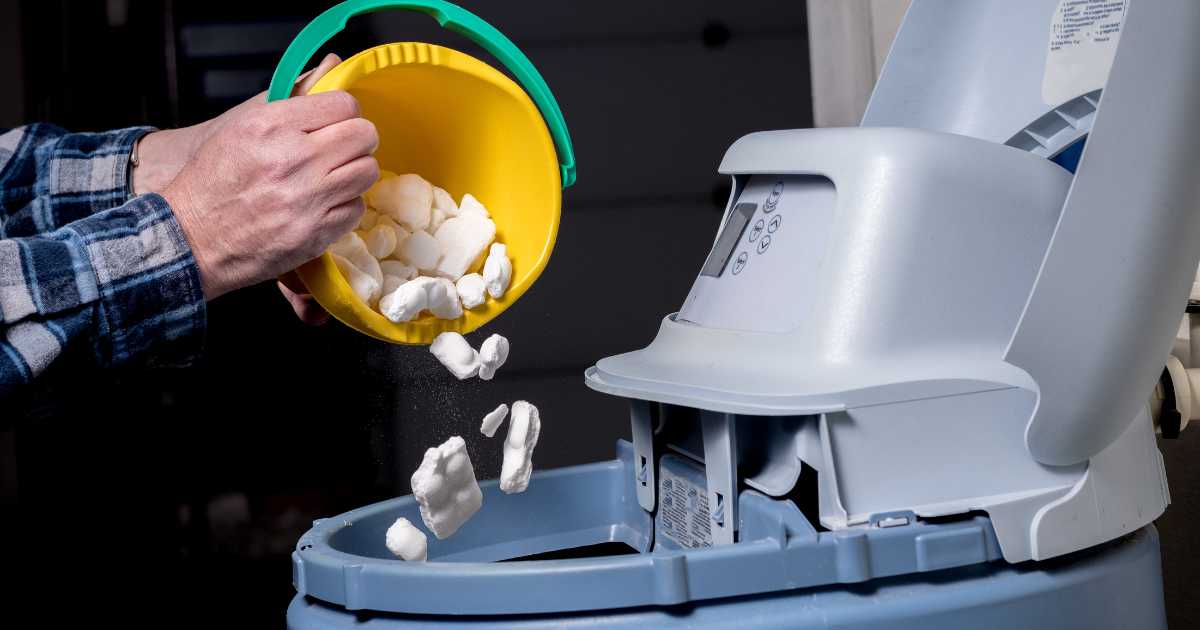We like to share product recommendations with you and hope you like them! Just to make you aware Water Filter Data may collect a small share of sales or other compensation from the links on this page.
In short, salt-free water softeners use a physical process to remove hardness from the water. Salt-free water softeners have been growing in popularity in recent years as a more environmentally friendly option for softened water. But how do salt-free water softeners work? How do they remove hardness from water, and what are the benefits?
In this article, we will explore the science behind salt-free water softening and find out how these systems work to provide you with soft water.
What is a Salt-Free Water Softener?

A salt-free water softener is a type of water treatment system that removes hardness from water without the use of harsh salts or chemicals. Instead, these systems rely on physical processes to remove minerals like calcium and magnesium ions from your water.
There are several different types of salt-free softeners available, including magnetic and electronic systems, as well as systems that use reverse osmosis or ion exchange to remove hardness.
Depending on the specific system being used, these filters may be installed at the point of entry into your home or at the point of use, such as a kitchen sink. They typically contain a specialized media that attracts and captures hardness minerals, which can then be flushed out of the system regularly.
How Do Salt-Free Water Softeners Work?
Each type of salt-free softener works a bit differently, but most use a physical process to remove hardness from water. For example, magnetic water softeners and electronic systems rely on electromagnetic fields to attract minerals and cause them to precipitate out of the water.
Reverse osmosis and ion exchange systems work by passing water through specialized filters that trap hardness minerals. These filters either use physical force or electrical charges to remove the minerals from your water, resulting in softer water without the use of salts or chemicals.
Salt-free softeners may not be as effective at removing large amounts of scale build-up on plumbing fixtures as standard salt-based systems.
One of the biggest benefits of salt-free water softeners is that they do not require any chemicals or salts to remove hardness from the water. This makes them a more environmentally friendly option compared to conventional water softeners, which can leave behind large amounts of sodium and other harsh byproducts.
What are the Benefits of Salt-Free Water Softeners?
There are several benefits to using a salt-free water softener, including:
- Improved water quality: Salt-free systems remove hardness-causing minerals from your water without the use of harsh salts or chemicals. This can help improve taste and quality and offer protection against scale buildup and corrosion.
- Less maintenance and upkeep: Salt-free systems don’t require periodic dumping of salts or other harsh chemicals, which can make them less labor-intensive to maintain. This reduces the overall cost of using a salt-free softener compared to traditional salt-based water softeners.
- Reduced environmental impact: Since they do not rely on harsh chemicals or salts, salt-free softeners have a lower environmental impact than conventional water softeners.
- Less costly: Salt-free water softeners can be less expensive to use over the long term, as they do not require periodic replacement of salts or other chemicals.
Potential Drawbacks of Salt-Free Water Softeners
While salt-free water softeners are a great option for many homeowners, they do have some potential drawbacks. These include:
- Lower effectiveness at removing hardness minerals: Some salt-free systems may not be able to remove minerals from water that cause hardness, as traditional salt-based softeners. This can lead to less effective water softening of your American home water.
- Need for regular maintenance: Salt-free softeners may require more frequent maintenance and upkeep to maintain their effectiveness over time.
- Softer water may cause unwanted side effects: While soft water is generally better for your plumbing system, it can lead to some unwanted side effects, such as increased soap scum stains in your showers or changes in the taste of your drinking water.
Salt-Based vs. Salt-Free Water Softeners: What are the Differences?

While both salt-based and salt-free water softeners are used to soften water, there are some key differences between these systems. These include:
- The salt-free process requires less maintenance than traditional salt-based systems: Since salt-free systems do not rely on chemicals or salts, there will be less buildup on plumbing fixtures or scaling around your water pipes and surfaces.
- Salt-free water softener systems are better for the environment: Traditional water softening methods can leave behind harmful byproducts like sodium that can pollute local waterways and harm aquatic ecosystems. A salt-free water conditioner eliminates this risk and is more environmentally friendly overall.
- Salt-free softeners can be less effective than traditional salt-based systems: Depending on the type of system being used, some salt-free water softeners may not be able to remove as much hardness from your water compared to a traditional water softener. Additionally, these systems may require regular maintenance and upkeep to maintain their effectiveness for true water softening.
If you are looking for a more environmentally friendly option that does not require as much maintenance, then a salt-free water softening system may be the best choice for you.
However, if you prefer softer water with more effective removal of water hardness concentration, then a traditional salt-based softener may be a better option.
Frequently Asked Questions
How well do salt-free water softeners work?
There is some debate about the effectiveness of salt-free water softeners, as these systems can sometimes be less effective at removing hardness from your water compared to traditional salt-based systems.
However, many homeowners find that these systems are a good option for better-tasting drinking water without using harsh salts or chemicals. Additionally, they often require less maintenance over time.
This can make them a good choice for homeowners who are looking for an affordable and low-maintenance way to soften their water.
How long does a salt-free water softener last?
The lifespan of a salt-free water softener varies depending on the specific system and how well it is maintained over time. Most salt-free water softeners should last for several years or longer with regular plumbing maintenance.
However, they may need to be replaced periodically if they become damaged or worn out. If you want to get the longest possible lifespan from your salt-free softener, it is important to maintain it regularly and replace parts as needed.
Conclusion
So, how do salt-free water softeners work? I hope this blog post has been useful in exploring the key benefits, drawbacks, and potential considerations of salt-free water softeners.
Whether you are looking for a more environmentally friendly option or simply want to stop spending money on salt bags, there are many reasons why a salt-free softener may be right for your home or business.
However, it is important to carefully weigh the pros and cons of these systems to determine whether they are the best choice for your needs.



